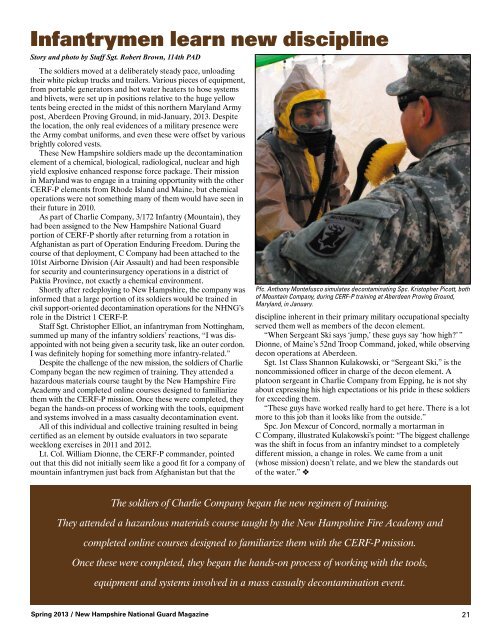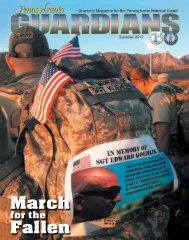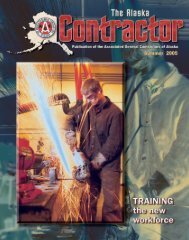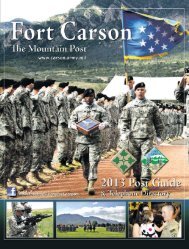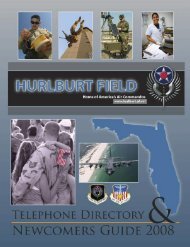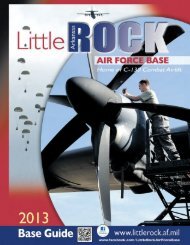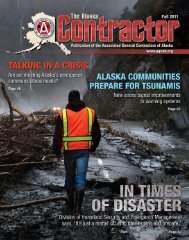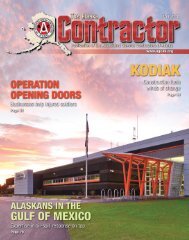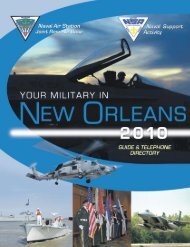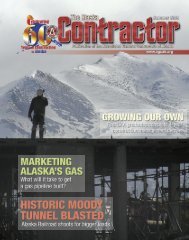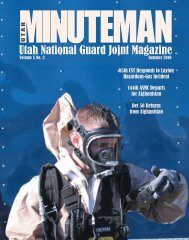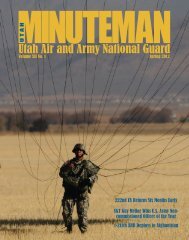New Hampshire National Guard - Spring 2013
New Hampshire National Guard - Spring 2013
New Hampshire National Guard - Spring 2013
You also want an ePaper? Increase the reach of your titles
YUMPU automatically turns print PDFs into web optimized ePapers that Google loves.
Infantrymen learn new discipline<br />
Story and photo by Staff Sgt. Robert Brown, 114th PAD<br />
The soldiers moved at a deliberately steady pace, unloading<br />
their white pickup trucks and trailers. Various pieces of equipment,<br />
from portable generators and hot water heaters to hose systems<br />
and blivets, were set up in positions relative to the huge yellow<br />
tents being erected in the midst of this northern Maryland Army<br />
post, Aberdeen Proving Ground, in mid-January, <strong>2013</strong>. Despite<br />
the location, the only real evidences of a military presence were<br />
the Army combat uniforms, and even these were offset by various<br />
brightly colored vests.<br />
These <strong>New</strong> <strong>Hampshire</strong> soldiers made up the decontamination<br />
element of a chemical, biological, radiological, nuclear and high<br />
yield explosive enhanced response force package. Their mission<br />
in Maryland was to engage in a training opportunity with the other<br />
CERF-P elements from Rhode Island and Maine, but chemical<br />
operations were not something many of them would have seen in<br />
their future in 2010.<br />
As part of Charlie Company, 3/172 Infantry (Mountain), they<br />
had been assigned to the <strong>New</strong> <strong>Hampshire</strong> <strong>National</strong> <strong>Guard</strong><br />
portion of CERF-P shortly after returning from a rotation in<br />
Afghanistan as part of Operation Enduring Freedom. During the<br />
course of that deployment, C Company had been attached to the<br />
101st Airborne Division (Air Assault) and had been responsible<br />
for security and counter insurgency operations in a district of<br />
Paktia Province, not exactly a chemical environment.<br />
Shortly after redeploying to <strong>New</strong> <strong>Hampshire</strong>, the company was<br />
informed that a large portion of its soldiers would be trained in<br />
civil support-oriented decontamination operations for the NHNG’s<br />
role in the District 1 CERF-P.<br />
Staff Sgt. Christopher Elliot, an infantryman from Nottingham,<br />
summed up many of the infantry soldiers’ reactions, “I was dis-<br />
appointed with not being given a security task, like an outer cordon.<br />
I was definitely hoping for something more infantry-related.”<br />
Despite the challenge of the new mission, the soldiers of Charlie<br />
Company began the new regimen of training. They attended a<br />
hazardous materials course taught by the <strong>New</strong> <strong>Hampshire</strong> Fire<br />
Academy and completed online courses designed to familiarize<br />
them with the CERF-P mission. Once these were completed, they<br />
began the hands-on process of working with the tools, equipment<br />
and systems involved in a mass casualty decontamination event.<br />
All of this individual and collective training resulted in being<br />
certified as an element by outside evaluators in two separate<br />
weeklong exercises in 2011 and 2012.<br />
Lt. Col. William Dionne, the CERF-P commander, pointed<br />
out that this did not initially seem like a good fit for a company of<br />
mountain infantrymen just back from Afghanistan but that the<br />
Pfc. Anthony Montefusco simulates decontaminating Spc. Kristopher Picott, both<br />
of Mountain Company, during CERF-P training at Aberdeen Proving Ground,<br />
Maryland, in January.<br />
discipline inherent in their primary military occupational specialty<br />
served them well as members of the decon element.<br />
“When Sergeant Ski says ‘jump,’ these guys say ‘how high?’ ”<br />
Dionne, of Maine’s 52nd Troop Command, joked, while observing<br />
decon operations at Aberdeen.<br />
Sgt. 1st Class Shannon Kulakowski, or “Sergeant Ski,” is the<br />
noncommissioned officer in charge of the decon element. A<br />
platoon sergeant in Charlie Company from Epping, he is not shy<br />
about expressing his high expectations or his pride in these soldiers<br />
for exceeding them.<br />
“These guys have worked really hard to get here. There is a lot<br />
more to this job than it looks like from the outside.”<br />
Spc. Jon Mexcur of Concord, normally a mortarman in<br />
C Company, illustrated Kulakowski’s point: “The biggest challenge<br />
was the shift in focus from an infantry mindset to a completely<br />
different mission, a change in roles. We came from a unit<br />
(whose mission) doesn’t relate, and we blew the standards out<br />
of the water.” v<br />
The soldiers of Charlie Company began the new regimen of training.<br />
They attended a hazardous materials course taught by the <strong>New</strong> <strong>Hampshire</strong> Fire Academy and<br />
completed online courses designed to familiarize them with the CERF-P mission.<br />
Once these were completed, they began the hands-on process of working with the tools,<br />
equipment and systems involved in a mass casualty decontamination event.<br />
<strong>Spring</strong> <strong>2013</strong> / <strong>New</strong> <strong>Hampshire</strong> <strong>National</strong> <strong>Guard</strong> Magazine 21


